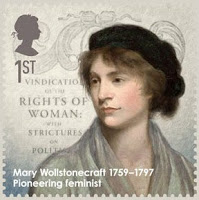



Mary Wollstonecraft (27 April 1759 – 10 September 1797) was an eighteenth-century British writer, philosopher, and advocate of women's rights. Instead of viewing women as ornaments to society or property to be traded in marriage, Wollstonecraft maintains that they are human beings deserving of the same fundamental rights as men. She argues that women ought to have an education commensurate with their position in society, claiming that women are essential to the nation because they educate its children and because they could be "companions" to their husbands, rather than mere wives. In it, Wollstonecraft responds to those educational and political theorists of the 18th century who did not believe women should have an education. Their writings advocated for treating the education of women’s domestic work as a science.A Vindication of the Rights of Woman: with Strictures on Political and Moral Subjects (1792), written by the 18th-century British proto-feminist Mary Wollstonecraft, is one of the earliest works of feminist philosophy. Both books were used as early textbooks for women’s education across the country. Catharine Beacher published A Treatise on Domestic Economy in 1841 and co-wrote Principles of Domestic Science with her sister Harriet Beacher Stowe in 1870. Considered one of the earliest feminist writings in the western world, A Vindication of the Rights of Woman makes the moral case for educating women in the same subjects and manners as men, rather than solely in the domestic arts to which women’s education was typically relegated.Ĭatharine Beacher and her sister Harriet Beacher Stowe, who is more famous for her work Uncle Tom’s Cabin, were advocates for women’s education in the mid-1800s. In this text, Mary Wollstonecraft argues for the education of women and their advancement in society. Women’s Rights and the Case for Women’s EducationĮnglish writer Mary Wollstonecraft published A Vindication on the Rights of Woman in 1792.


 0 kommentar(er)
0 kommentar(er)
